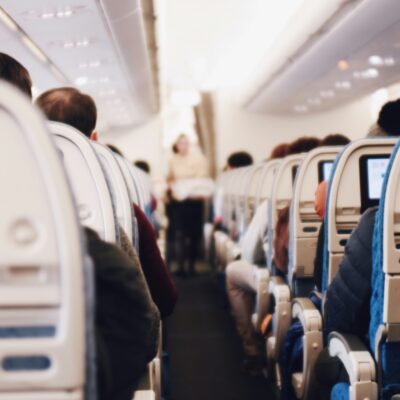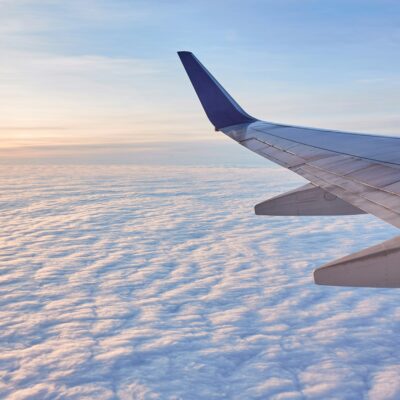Introduction to the Fascinating World of Airplanes
Welcome aboard, aviation enthusiasts and wanderlusters! Buckle up as we take flight into the captivating world of airplanes. From the historical marvels that shaped modern air travel to the cutting-edge innovations propelling us into the future, join us on a thrilling journey through the skies. Let’s soar high and explore the beauty of flying like never before!
History of Flight: A Brief Overview
Imagine a time when the idea of human flight was just a distant dream, something reserved for birds and mythical creatures. But then came the Wright brothers, Orville and Wilbur, who defied gravity in 1903 with their first successful powered flight in Kitty Hawk, North Carolina.
Their groundbreaking achievement paved the way for rapid advancements in aviation technology. During World War I, airplanes were used for reconnaissance and combat purposes, demonstrating their strategic importance.
The interwar period saw the development of commercial aviation as airlines began offering passenger services. The iconic Douglas DC-3 became synonymous with comfortable air travel during this time.
World War II pushed aircraft innovation even further with the introduction of jet engines and faster speeds. Post-war era brought about the rise of commercial jetliners like the Boeing 707, revolutionizing long-distance air travel forever.
Today, we look back at how far we’ve come from those humble beginnings to modern marvels like the Airbus A380 and supersonic planes – a testament to human ingenuity and ambition in conquering the skies.
The Mechanics Behind Flying: How Do Airplanes Stay in the Air?
Have you ever looked up at the sky and wondered how airplanes manage to defy gravity and soar through the clouds with such grace? It’s truly a marvel of engineering that allows these massive machines to stay airborne.
The key to flight lies in the aerodynamics of an airplane. As the aircraft moves forward, its wings generate lift by creating a pressure difference between the upper and lower surfaces. This lift force counteracts gravity, keeping the plane aloft.
Additionally, engines provide thrust, propelling the airplane forward. The combination of lift from the wings and thrust from the engines allows planes to maintain stable flight at varying altitudes.
To control their direction and altitude, airplanes also have control surfaces such as ailerons, elevators, and rudders. Pilots use these surfaces to maneuver through different flight conditions smoothly.
Next time you board a plane for your next adventure, take a moment to appreciate the intricate mechanics that make flying possible!
Types of Aircrafts and Their Purposes
When it comes to types of aircraft, the options are as diverse as they are fascinating. From small single-engine planes used for recreational flying to massive commercial jets transporting passengers across continents, each serves a unique purpose.
Helicopters, with their ability to hover and maneuver vertically, are often used for search and rescue missions or in inaccessible areas where traditional aircraft cannot reach. On the other hand, military jets like fighter planes are designed for speed and agility in combat situations.
Cargo planes play a crucial role in transporting goods around the world, from perishable items like fruits and vegetables to oversized machinery that requires special handling. These aircraft ensure that products reach their destinations efficiently and on time.
Additionally, seaplanes offer the versatility of taking off and landing on water, making them ideal for reaching remote locations or providing scenic tours over picturesque landscapes. Each type of aircraft has its own set of capabilities that cater to specific needs within the aviation industry.
Inside an Airplane: Exploring Different Classes and Features
Airplanes are not just a means of transportation; they offer a glimpse into luxury and comfort for passengers. When you step inside an airplane, you enter a world of different classes catering to various needs and preferences. From economy class with its affordability to business class offering extra space and amenities, each cabin provides a unique experience.
In economy class, you’ll find the essentials for your journey, including comfortable seats and in-flight entertainment options. Business class takes it up a notch with spacious seating arrangements, gourmet meals, and personalized service. First-class elevates the experience even further with private suites, fine dining menus curated by renowned chefs, and exclusive amenities.
No matter which class you choose to fly in, modern airplanes boast advanced features such as mood lighting systems that mimic natural daylight or starry skies. The interiors are designed to create a pleasant ambiance throughout the flight ensuring passengers arrive at their destination feeling refreshed and relaxed.
The Future of Air Travel: Advancements and Innovations
The future of air travel is an exciting realm filled with advancements and innovations that promise to revolutionize the way we soar through the skies. From supersonic jets capable of cutting travel times in half to eco-friendly aircraft powered by sustainable fuels, the possibilities are endless.
Imagine boarding a plane equipped with virtual reality entertainment systems or windows that double as touch-screen displays, providing passengers with a truly immersive flying experience. With advancements in materials and technology, planes are becoming lighter, more fuel-efficient, and environmentally friendly.
Furthermore, the integration of artificial intelligence and automation into flight systems is set to enhance safety measures and improve overall efficiency. Pilots will soon have access to real-time data analytics and predictive maintenance tools that ensure smoother flights and quicker turnarounds.
As we look ahead to the future of air travel, one thing is certain: innovation knows no bounds when it comes to taking flight. Get ready for a journey into uncharted skies where the only limit is our imagination!
Why Flying is More Than Just a Mode of Transportation
Flying is not merely a method of getting from point A to point B; it represents adventure, exploration, and the boundless possibilities of the skies. The thrill of soaring above the clouds, the beauty of watching sunrises and sunsets from thousands of feet in the air – these experiences connect us to something larger than ourselves. Airplanes have revolutionized how we see the world and have brought people together like never before.
As technology advances and innovations continue to shape the future of air travel, one thing remains constant: flying will always captivate our imaginations and inspire a sense of wonder. So next time you board a plane, take a moment to appreciate not just the destination ahead but also the incredible journey that aviation has taken us on. Fly high, dream big, and let your spirit soar with every flight you take.





